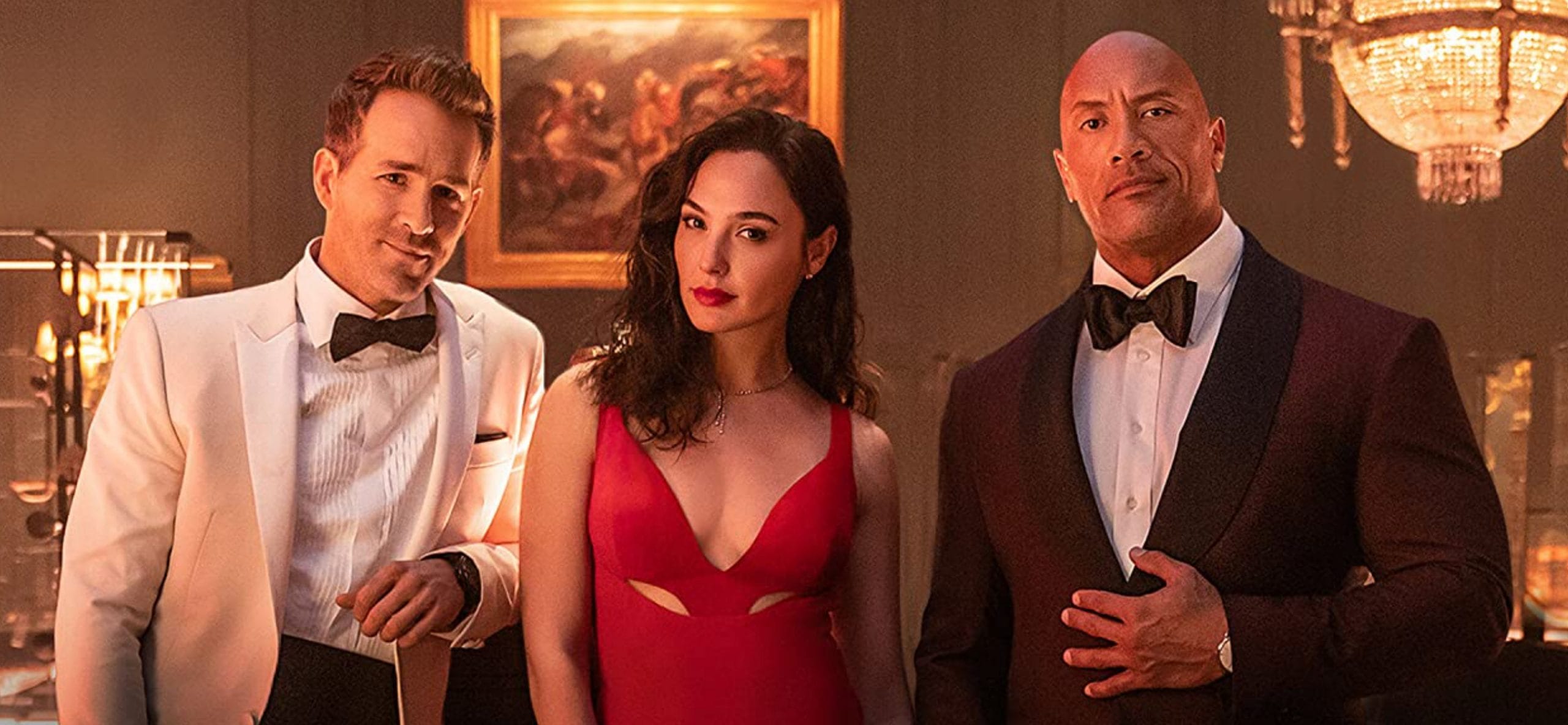
What Netflix needs from a blockbuster film such as the $200m Red Notice isn’t the same as what a traditional studio would want…

Arriving on Netflix this weekend is one of its most expensive films to date, Red Notice. This was a movie sold as a package, reuniting the team behind the hits Central Intelligence and Skyscraper – primarily the world’s biggest movie star, Dwayne Johnson, and writer/director Rawson Marshall Thurber. The latter started his career with the joyful Dodgeball, and has built his way to blockbuster cinema, and by distance this is his biggest project.
Yet for such a huge movie, it has independent roots. Thurber and Johnson assembled the project without a studio attached; a film about art thieves, and Interpol issuing the notice of the title, to denote a criminal who is wanted urgently around the world. They then took it to market, where assorted movie studios lined up to bid for it. Anyone fancy a new Dwayne Johnson movie, pretty much ready to go? Turns out lots of people did.
This was back in 2018, when the idea of a movie studio launching a non-franchise blockbuster film wasn’t quite so alien. The basics were it was going to cost whoever prevailed around $150m to just make the film, with further promotion and marketing costs on top.
Anyone fancy a new Dwayne Johnson movie, pretty much ready to go? Turns out lots of people did
Outside of Disney, all the major studios lined up, with a partnership between Universal Pictures and Legendary Pictures prevailing. It guaranteed Johnson an up-front pay day of $20m for the first time in his career. Thurber, too, is said to have trousered some $10m for his work here.
But, during the agreed development and pre-production phase, Universal soon got the collywobbles. Two big Dwayne Johnson blockbusters landed in the summer of 2018, and whilst both did decent business, neither soared. Instead, in financial terms, both Rampage and Skyscraper washed their respective faces, whilst Disney’s latest Avengers movie grossed more than the pair combined. On top of that – appreciating they have their fans – neither of those Johnson vehicles was massively liked either.
Furthermore, with Gal Gadot and Ryan Reynolds both joining the cast of Red Notice as it began to crew up, it was getting a bit too rich for the respective studios to handle. Universal and Legendary exited 18 months after they’d secured the project, and in came Netflix.
ArrayFor Netflix, money was less of an object (both in terms of what it spent and what it intended to recoup from the movie), and it also had to restructure the deals of the core creatives to account for the fact there’d be no back-end bonuses (which are traditionally calculated based on box office returns). The budget moved up to around $200m (and it’s not hard to imagine that nearly half of that is salaries), but the streamer knew what it was buying: movie star power.
Original blockbuster cinema is the one area that Netflix hasn’t quite managed to bag a good slice of (Michael Bay’s 6 Underground was its highest profile attempt to this stage) and here was a ready-made package. To the shock of the industry, it jumped straight in.
There were questions. Did Universal duck out because it wasn’t happy with the state of how things were shaping up? It doesn’t matter. Netflix, with the best will in the world, doesn’t have a quality metric to satiate here (look at the majority of the films as part of its ongoing Adam Sandler deal). It needs star wattage and it got it.
The resultant film – made after an inevitable Covid-lockdown break – is neither terrible nor special, but for Netflix, it’s a box very much ticked. It does a few things: it gives its subscribers a big new film to watch, it gives it a major movie to push and promote, and it acts as a magnet for other blockbuster filmmakers looking to get big budget films going.
Netflix doesn’t have a quality metric to satiate here – it needs star wattage and it got it
Other studios interfering too much, or cutting corners? Netflix has now signalled to Hollywood that it might just be the best place to get a big film of this ilk going.
Red Notice, even more than 6 Underground, is a statement of intent: that Netflix is happy to pay big bucks to big stars, to deliver a big movie, and to sell it as if it’s a huge event. All at a time when the competition in the streaming market has never been more intense.
Does it matter if it’s actually any good? Not massively, and it’s hard to imagine Netflix studio executives being allowed too much creative sway over such an off-the-shelf purchase anyway. The important part for Netflix is who’s in it, and that it exists.
For the audience? We can but hope that any Red Notice 2 turns out a little better. But on the flip side, there is now a path to make a hugely expensive film, that can come in at under two hours, without a Roman numeral in the title. That’s got to be something…




